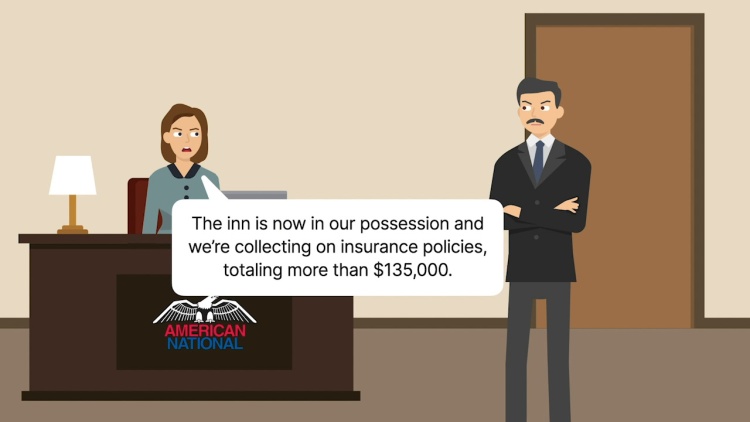Kossian v. American National Insurance Co.
California Court of Appeal
254 Cal. App. 2d 647, 62 Cal. Rptr. 225 (1967)
- Written by Craig Conway, LLM
Facts
A portion of the Bakersfield Inn, owned by Reichert, was destroyed by fire. At the time of the incident, the property was subject to a deed of trust in which American National Insurance Company (defendant) was the beneficiary. Reichert hired Peter Kossian (plaintiff) to clean up and remove the debris from the damaged portion of the Inn for $18,900. American National had no knowledge of the agreement between Kossian and Reichert. Kossian completed the work within two months. During that time, American National provided notice to Reichert that he was in default on the deed of trust. Kossian did not know about the default until after the work was completed. After Kossian had fully performed the work, Reichert filed for bankruptcy. Thereafter, American National submitted claims totaling $160,000 under fire-insurance policies, including a claim for $18,000 as the estimated cost for removing and cleaning the debris from the Inn. After negotiations between American National and the fire-insurance carriers, the carriers paid $135,620 to American National. That payment included some amount for debris cleaning and removal, but the exact amount for the cleanup was not specified. Kossian filed suit against American National seeking payment for the work he performed. The trial court granted American National’s motion for summary judgment, and Kossian appealed.
Rule of Law
Issue
Holding and Reasoning (Stone, J.)
What to do next…
Here's why 906,000 law students have relied on our case briefs:
- Written by law professors and practitioners, not other law students. 47,100 briefs, keyed to 995 casebooks. Top-notch customer support.
- The right amount of information, includes the facts, issues, rule of law, holding and reasoning, and any concurrences and dissents.
- Access in your classes, works on your mobile and tablet. Massive library of related video lessons and high quality multiple-choice questions.
- Easy to use, uniform format for every case brief. Written in plain English, not in legalese. Our briefs summarize and simplify; they don’t just repeat the court’s language.





